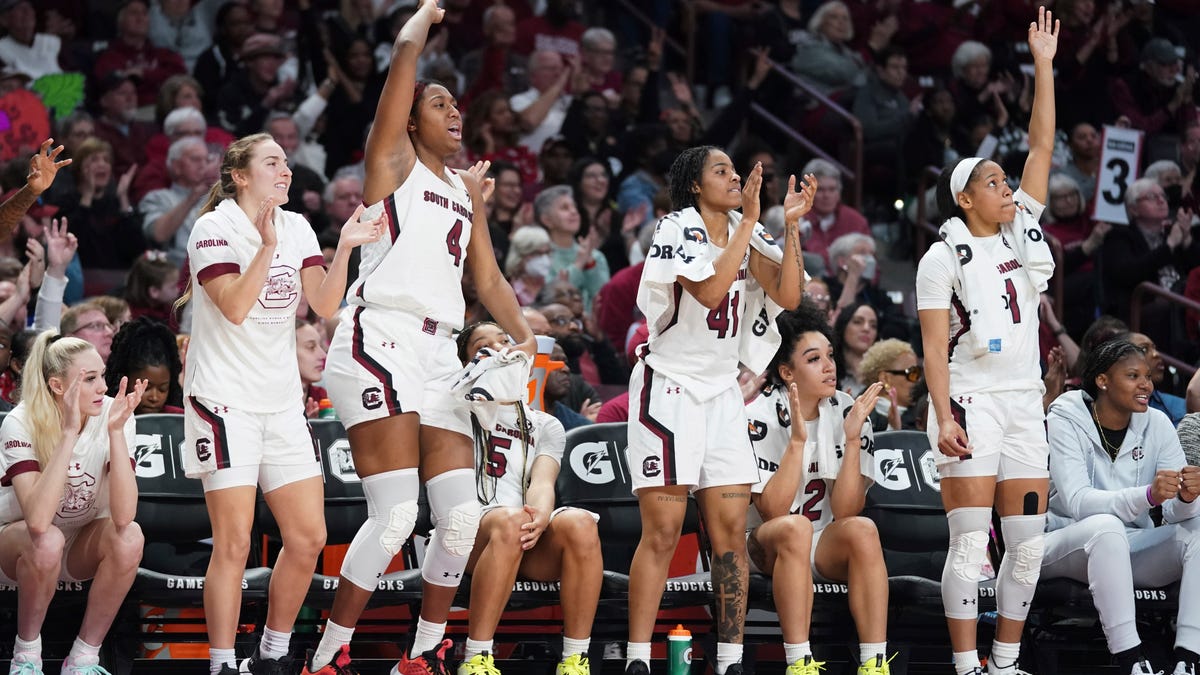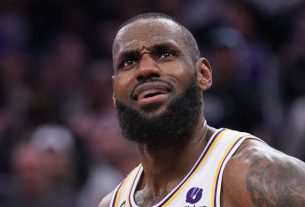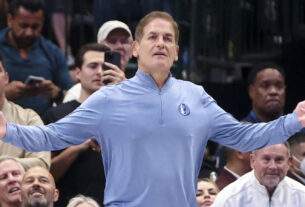Here we go. Again. Women’s sports are given media coverage, and men feel the need to make sure we all know no one cares about women’s sports. “Women’s sports aren’t interesting.” “Men’s sports are better.” “Women don’t deserve media coverage.”
It intrigues me that people who claim to care so little about women’s sports feel such an intense need to share how much they don’t care.
Jason Whitlock is a buffoon
The latest contributor to not caring goes to noted sports manist Jason Whitlock, who was upset that ESPN’s late-night SportsCenter coverage Monday dared dedicate the first six minutes to two college women’s basketball games. Then, after being called out for his take, he took to right-wing Blaze Media to blast ESPN for pandering to the feminists, and blast women for daring to want to see media coverage of women’s sports. He also managed to indirectly insult men and added accusations of racism to the top of this spectacular sundae of whining.
Here’s the thing, Jason. You claim that women are not owed reparations because “They have not been mistreated, denied freedom, or relegated to an inferior position. They’re not victims of an exploitative patriarchal tradition.” Two sentences later, you label women as the “weaker sex,” relegating them to an inferior position. Saying women’s sports don’t deserve the coverage they are getting makes them a victim of an exploitative patriarchal tradition.
The flip side of that coin is that men are not entitled to all the sports coverage. Or all the prominent sports coverage. Whitlock asks what percentage of sports fans, exactly, are served by six minutes of women’s basketball coverage.
The answer is a rapidly growing percentage.
Rising number of participants in women’s athletics
The Women’s Sports Foundation reports that 60 of girls participate in a high school sport. Roughly 44 percent participate in a collegiate sport. 2022 brought record-breaking viewership numbers. A study from the National Research Group found 30 percent of respondents say they are watching more women’s sports than they were five years ago.
The No. 1 reason given for the growth? “There are more women’s sports being broadcast.”
It’s not just women watching
What hasn’t been mentioned is that this growth is not just among women; men are watching too. Fathers are watching with their daughters; many took to Twitter to praise Kendall Coyne Schofield’s participation in the 2019 SAP NHL All-Star Skills competition, saying she not only served as a role model for their daughters, but their daughters now realize hockey was a sport they could play too.
DJ Dunson noted the broadcast deals that have been inked by ESPN for women’s basketball, both NCAA and the WNBA. Front Office Sports highlights the broadcast deal with the NWSL. Viewership numbers have soared for women’s sporting events in the past couple of years, and demand continues to grow.
Whitlock fails to take any of that into account, simply chalking up ESPN putting women’s collegiate basketball on ESPN as “pandering to the feminist agenda.” The most recent version of USC/Purdue University’s study on sports coverage by gender found 5.7 percent of ESPN’s SportsCenter broadcast was devoted to women’s sports.
Almost six percent. What pandering. The feminist agenda has dismantled the sports patriarchy. Or maybe, just maybe, ESPN isn’t pandering to a feminist agenda. Perhaps they are making a business decision to cater to a rapidly growing audience and demand.
Whitlock believes women are only getting coverage in sports media because they have beaten these media entities into submission and created a species of weak and simpering men who are just unnecessary in society. Those six minutes on SportsCenter apparently represent the utter downfall of American society. That is a hell of a claim to make about six percent of all coverage on SportsCenter, or six minutes of coverage one night.
Women watch sports. Women play sports. Women love sports. That’s not a feminist agenda. That’s a fact. No one is asking for all men’s sports to cease being covered in favor of all women, all the time. No one is seeking the destruction of men in society through more women’s basketball coverage.
It’s not outlandish or unreasonable for women to want media coverage. Especially when the numbers show demand for women’s sports programming. Representation matters, and the next generation of young women wanting to play sports should see the likes of Caitlyn Clark, Alex Morgan, Kendall Coyne Schofield, Coco Gauff, Jocelyn Alo, or the multitude of other amazing athletes playing the sports they love.
Social stigma surrounding women’s sports
The Women’s Sports Foundation notes one of the main reasons girls drop out of sports is due to social stigma — specifically, girls experience bullying and social isolation due to their involvement in sports. Bullying … like men taking to social media to proclaim that women’s sports are boring, no one cares, they are ruining sports, they are ruining society. A recent search of LSU gymnast Olivia Dunne’s name on Twitter found multiple videos that men made where they were masturbating to her image. If you’re going to complain about a lack of biblical values, Jason, perhaps you should condemn the men who feel posting that type of content is in any way clever or appropriate. That’s more disturbing than a drag queen ever will be.
Sports are not just about building strong men. It’s about building strong men and women. Women who participate in sports reap a multitude of benefits — socially, personally, and academically. Women have always been strong. Women will continue to be strong, even as their accomplishments and achievements are put down, simply because they are women.
The irony is not lost on me that all of this stemmed from six minutes of sports coverage. From that six minutes, women were basically told to sit down, shut up, and know their role. The gaslighting of women being told that they have it good in the U.S., that they’ve never been mistreated (as they are repeatedly insulted) or seen as less than, and that developing a strong woman has become a priority over developing strong men … phew. That six minutes must be devastating if it unleashed so much upset and anger. You know what I typically do if I see sports coverage I don’t care about? I move on with my day.
If you are this upset by six minutes of coverage, you probably shouldn’t be calling women the weaker sex.
Lauren Smith is an associate professor of sports media in the Media School at Indiana University. Her research focuses on examining the psychological effects of mediated sports content on emotions. She studies issues of gender, race, identity, and social justice. Lauren is currently a nationally ranked age-group triathlete and three-time Ironman finisher.




